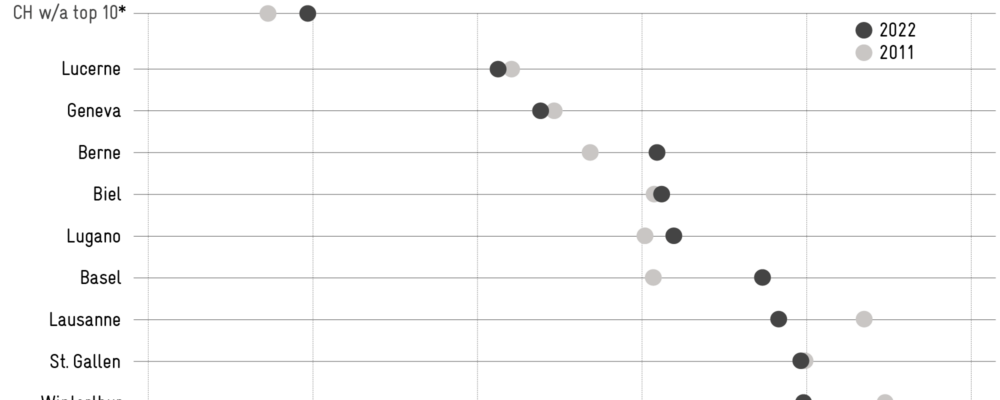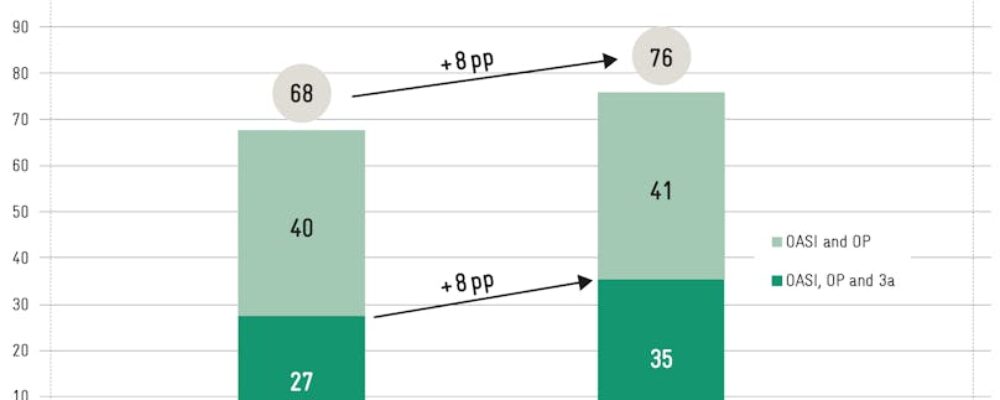IHK St. Gallen‐Appenzell: Mr. Leisibach, how much time did AI save you while preparing for this conversation?
Patrick Leisibach: I read some recent articles, did some background work, and got my thoughts in order. With AI, that goes much faster. It helps with research, summarizing, and sharpening arguments. I’d never be able to do the same in the same amount of time on my own. I’d say AI doubles my productivity in those tasks.
Like having a “second Patrick Leisibach” next to you. Does that mean companies will soon be able to cut every other office worker?
I find that very unlikely. To me, AI is primarily complementary, not a replacement. It doesn’t work by itself — you need someone to operate it, check the results, interpret them. Of course, some tasks will be completed more efficiently, but there remain plenty that require creativity, responsibility, and empathy.
Other estimates are more pessimistic; many believe AI will displace millions of jobs, especially in office settings. Shouldn’t we react to that?
Historical experience suggests otherwise. Every great technological wave has ultimately created more jobs than it destroyed. I find it bold to assume that this time is different. Yes, there will be job losses in some sectors—I don’t deny that. But the changes will be gradual, not shocking. People, companies, and institutions typically adapt slowly.
Suppose the pessimistic scenario happens: fewer jobs, lower incomes, less tax revenue. More voices will demand an AI tax to fill the looming hole in public finances. What do you think of that?
First: we mustn’t forget that demographic change will initially worsen the already existing labor shortages. AI can help improve productivity and alleviate that shortage. And second: I do not see why AI should be treated differently for tax purposes than other technologies. To me, that’s the wrong approach. Profits generated by AI are already taxed—corporate taxes and income taxes capture them. An additional levy would lead to a distortive double taxation.
The World Economic Forum (WEF) estimates that 65% of children who started school in 2016 will later work in professions that did not yet exist when they began school. Could it be sensible to impose an AI tax to finance necessary retraining?
Further education is absolutely central in this development. But we do not need a special tax for that. Thanks to new technologies we have become more productive. This leads to higher wages and lower prices — all of which boosts purchasing power, supports demand and creates jobs. And I repeat myself: the value‐creation resulting from this is already captured under the existing tax system. It would be absurd to tax progress in order to pay for retraining: we’d be applying the brakes to the very engine that delivers the resources for further education.
Some industries benefit from AI more than others. A hairdresser or a restaurant can’t automate as much as a digital agency. Is it fair to treat everyone the same under the tax code?
The tax system taxes profits and income—not the means by which they are generated. Whether profits come from manual work or automation doesn’t matter. If we begin to treat technologies differently, we create perverse incentives. Companies would no longer invest in what is most productive, but in what yields the best tax treatment. That would be poison for a high‐wage country like Switzerland, which can only compete globally through its high productivity. Also, the practical boundary of what constitutes “AI‐induced” change or tasks would be difficult if not impossible to draw.
One proposal is that the hypothetical wages saved by AI (if a job is eliminated) should be taxed.
Theoretically that sounds simple — but practically it isn’t. How do you determine whether a job was really replaced by AI? Perhaps it was due to reorganization, outsourcing, or simply reduced demand. In the end, many assumptions would have to be made to estimate this. That introduces arbitrariness and bureaucracy—but not a reliable tax base.
Will AI increase the gap between capital owners — who benefit from productivity gains—and employees?
Such worries have existed for a long time. In Switzerland they have not so far been confirmed. The share of wages in national income has been stable for years. At the same time, capital is heavily taxed here in international comparison—both in its substance and its returns. If inequality truly worsened, it would make more sense to adjust the existing system.
What if Switzerland does introduce an AI tax alone?
That would be dangerously risky. Technologies are mobile. Companies might move their activities to countries that do not impose such a tax — i.e. virtually any other country in the world. That would be economically ruinous for Switzerland. It’s therefore unsurprising that no country has taken that step. The general tendency is clear: many countries are choosing to support research and innovation through tax relief, rather than penalizing them. An additional AI tax would be a go-it-alone path that would weaken Switzerland in global competition.
This interview was conducted by Fabio Giger and was published on September 26, 2025, in Facts magazine.
“Avenir Suisse is an independent think tank that works for the future of Switzerland by developing evidence-based, liberal, free-market ideas.”
Please visit the firm link to site





